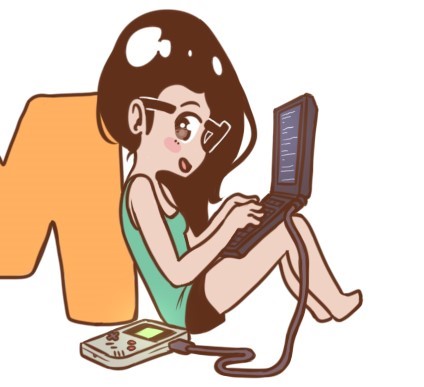Gwen Valentine

- Role: Project manager / programmer
- Company: Froiktown
- Location: Easter, US
We chatted with Gwen, a project manager and programmer at Froiktown.
QRM: Can you tell us a little bit about who you are and what you do in the games industry?
Gwen: Handle small experimental projects with global collaborators and work as a contractor on a few narrative driven projects.
QRM: How long have you been involved in the game industry, and what projects have you worked on? What are you working on currently?
Gwen: I've been working in the games industry for like 2-3 years? I'm contracted on Phantasmagia right now, as well as working on a few smaller projects under Froiktown.
QRM: What inspired you to get started in the games industry?
Gwen: I was homeless, I had a laptop. And I was better with computers than I was at door-to-door sales.
QRM: In what ways do you feel your experiences as a queer person manifest in the games you work on, and influence the work you do?
Gwen: I feel it gives me a wider breadth of subjects to touch upon. And also serves as a core community to find collaborators and work within.
QRM: Do you have a favourite queer character—in games or media more generally? If so, what is it about them that makes them your favourite?
Question asked by @kamienw.
Gwen: Samus [from Metroid] is trans.
QRM: Have you ever encountered roadblocks in trying to include queer characters in games? What do you think is preventing greater diversity within games?
Question asked by @dustinalex91.
Gwen: Referring to characters as explicitly gay or trans is difficult to manage? In a way that calling attention to it brings a lot of criticism on both sides. We've managed to sidestep the issue by never using words like "gay, straight, trans" in our games but by using heavy symbolism and treating those experiences as not very different from the norm from a narrator standpoint.
Though it is very easy to fall into pitfalls of trying to invert a trope and accidentally just recreating the trope in it's entirety, just in a vaguely different setting (e.g. how trans characters are handled in Japanese media).
QRM: Why do you think it is important that queer audiences are able to see themselves represented in the games they play, and in the developers who make the games they see? What can we do to improve the industry for queer audiences and devs?
Gwen: Having characters and situations that are relate-able to queer audiences is important in so much as it helps them feel that they are normal and brings attention from wider audiences that these people are okay.
And we need to diversify the industry from within with an overhaul of hiring practices. (There are too many old white guys.)
QRM: In what ways can non-queer folk increase and support queer diversity present within games, as well as in the industry more broadly? How can we all work to support intersectional approaches to diversity, and why is this important?
Gwen: It really comes down to have more diverse voices in the room. Hire more queer and minority devs.
QRM: Is there a message that you would like to share with the queer game players, game studies researchers, and other interested folks who comprise the Queerly Represent Me community?
Gwen: If you're from poverty do your best to rip and tear your way from the underclass. You can make it, don't settle.
*
You can find Gwen on Patreon, itch.io, and Twitter.
Gwen is working with @JelleBones on this project.
